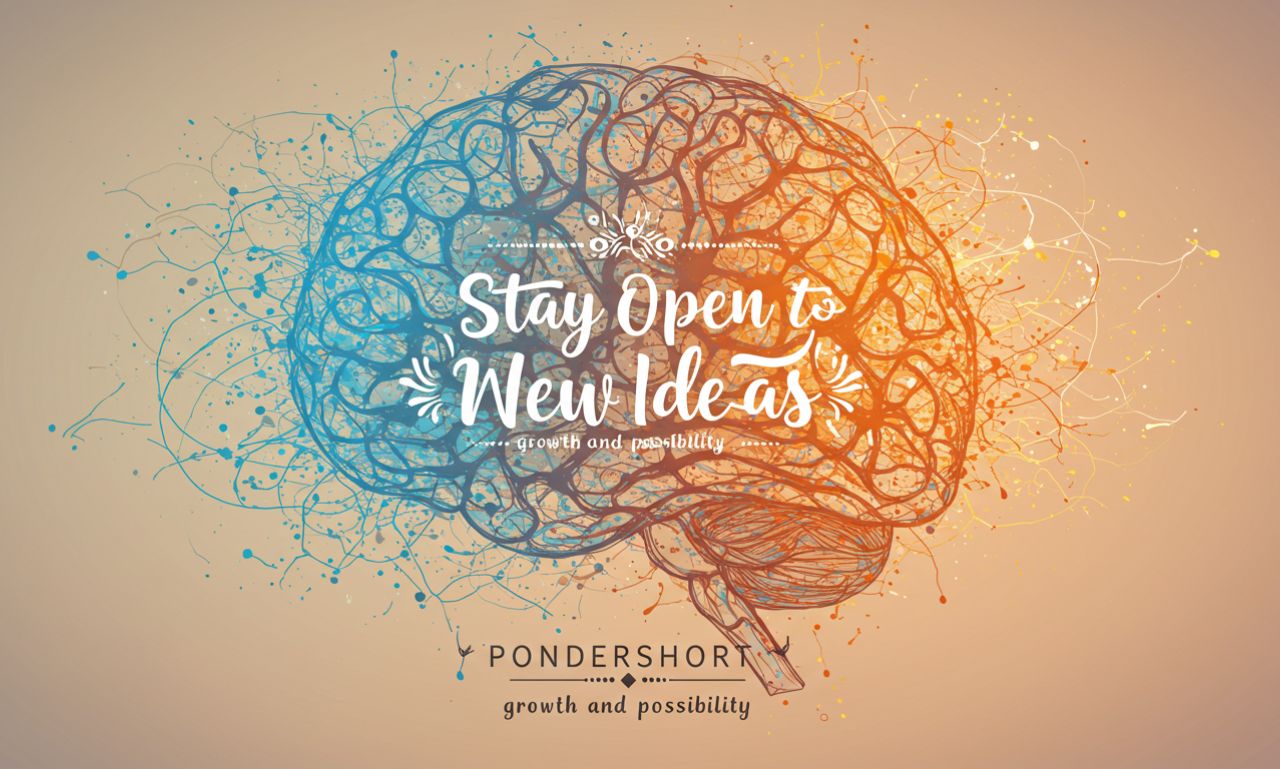In a world that’s evolving faster than ever, the ability to stay open to new ideas isn’t just a personal strength—it’s a survival skill. Yet, for many of us, openness is easier said than done. We become attached to familiar routines, beliefs, and systems. But true growth begins the moment we pause, question, and invite something new into our thinking.
This pondershort invites you to reflect on the quiet power of open-mindedness and the life-changing magic that can happen when we let fresh ideas in.
Why Staying Open Matters More Than Ever
Every major advancement—whether in technology, science, business, or art—started with someone asking, “What if we tried something different?”
When we Stay Open to New Ideas Pondershort , we:
-
Break through creative blocks
-
Discover better solutions
-
Connect with people outside our bubble
-
Challenge our own assumptions
Rigid thinking can offer comfort, but it also builds walls. In contrast, open-mindedness builds bridges—to opportunity, insight, and innovation.
The Psychology of Openness
Psychologists associate openness with traits like curiosity, imagination, and emotional intelligence. People who welcome new perspectives are generally:
-
More adaptable to change
-
Better at problem-solving
-
Less prone to conflict
-
More empathetic and inclusive
Openness doesn’t mean accepting every idea without question. It means considering new possibilities before deciding what works best.
Barriers That Close Us Off
Even with the best intentions, staying open can be hard. Common barriers include:
-
Fear of being wrong
-
Ego and overconfidence
-
Comfort in routine
-
Peer pressure or cultural norms
Awareness is the first step. When we recognize these barriers in ourselves, we can pause, breathe, and make a conscious choice to listen instead of resist.
Small Ways to Stay Open Every Day
Being open to new ideas doesn’t require radical change. Start small:
-
Ask more questions than you give answers.
-
Read a book from a genre or viewpoint you usually avoid.
-
Invite feedback, especially from those who disagree with you.
-
Replace “I already know” with “Tell me more.”
-
Try one thing that scares you a little each week.
Like any skill, openness gets stronger with practice.
Examples from the Real World
Think of the breakthroughs that began as unpopular ideas:
-
Electric cars were once seen as impractical. Now they’re mainstream.
-
Remote work was dismissed by many—until the world changed overnight.
-
Streaming platforms disrupted how we consume media.
Behind every leap forward was a moment of openness—someone willing to try what others wouldn’t.
The Humility of Not Knowing
Staying open isn’t about knowing everything—it’s about accepting that you don’t. It’s rooted in humility.
A truly open person says:
“I may not have the full picture. Let’s explore this together.”
In a time when certainty is overvalued, humble curiosity is a superpower.
